Leadership is a tricky business – especially when it comes to employee performance. Even the best leaders can make mistakes that unintentionally affect their team’s motivation and productivity. In this blog post, we’ll explore some of the most common leadership mistakes and how to avoid them. So whether you’re a new leader just starting out, or a seasoned veteran looking for a refresher, read on for some helpful tips!
Not providing clear expectations – if your employees don’t know what you expect of them, they can’t meet your expectations
When high-performance coaches talk about the keys to success, one of the most important things they emphasize is providing clear expectations. If you don’t let your employees know what you expect of them, it’s almost impossible for them to meet those expectations. After all, they’re not mind-readers! To get the best out of your team a “set high and clearly explain” approach is key – that way everyone knows what to aim for and how to get there. So if you want high performance from your employees, start by clarifying your goals in a way everyone can understand.
Micromanaging – this can make employees feel like they’re not trusted to do their job and can lead to resentment
Micromanaging can put high-performance coaches in a really sticky situation! Not only do employees feel like they’re not trusted and respected, which can lead to resentment, but high-performance coaches struggle too – how do you get an employee to trust themselves without completely letting them go? It’s a tough balancing act that many high-performance coaches have to manage. If you find yourself micromanaging, it might be time to step back and rethink your approach; as high-performing coaching isn’t just about getting the job done – it should also include building trust with employees so they can be their best selves on the job.
Not being available – if you’re not around to answer questions or give guidance, your team will struggle
As high-performance coaches, we know that not being available to provide guidance and answer questions can be a major hindrance to high performance. It’s easy for teams to get stuck, struggling for direction without the expertise that only you can provide! Being around to provide direction and show your team the ropes is essential; that way, they can work together as a cohesive unit and begin working efficiently toward success.
Failing to give feedback – both positive and negative feedback is essential for employee growth
It’s the high-performance coaches’ worst nightmare – a workplace where no one gives feedback, positive or negative! This can limit an employee’s growth in all sorts of ways. We’ve all experienced working for someone who wouldn’t satisfy us with something as simple as a pat on the back after finishing a tough project. Not every high-flyer wants to climb the ladder, but it’s wrong to deny people from recognizing their accomplishments and being rewarded for it. On the flip side, without constructive criticism (that doesn’t involve personal judgment!) no one can achieve their peak performance or understand what they’re doing well and things they could improve upon. So if you want to be a high-performance company get high-performance coaches and make sure everyone is aware of the importance of gaining (and giving!) feedback on a regular basis.
Being a poor communicator – this can cause miscommunication and confusion among your team members
Poor communication can make high-performance coaches feel like they’re playing a high-stakes game of Telephone – and the outcome isn’t always pretty! Every miscommunication or misunderstanding has the potential to chip away at team morale, feeling of trust and cohesion, and mutual respect within the group. It’s essential for high-performance coaches to ensure their communications are clear, concise, understood by all involved parties, and managed proactively. Excellent communicators understand how important it is for them to remain composed, patient, and diligent about getting the words right when coordinating with their team. In short, great listening combined with effective speaking abilities can put high-performance coaches in a stronger position to lead a successful team.
Making decisions without input from others – it’s important to get input from those who will be affected by your decisions before making them
Making high-performance decisions without the input of those who will be affected by them can sometimes feel like driving a car at high speeds with your eyes closed. Sure, it may seem thrilling and adventurous, but you risk careening into a ditch! That’s why high-performance coaches suggest that in order to make high-impact decisions, you should try to get input from all of those who will be impacted first. This small effort can help ensure that the decision you make leads to huge rewards for everyone involved!
Not Defining or Communicating the Company’s Vision
Trying to make a high-performance team without any sort of vision or direction is like having high-performance coaches shouting out randomly generated instructions to their athletes. You might get some success from this every now and then, but in the long term, you’re unlikely to get too far down the track. That’s why it’s essential for businesses to define and communicate their vision – so everyone can work together on a clear set of goals with the same mindset. Otherwise, it’ll be like trying to assemble IKEA furniture without the instruction manual: Challenging, confusing, and ultimately a waste of time.
Failing to Delegate or empower employees
If you’re a high-performance coach, you know all too well how not delegating tasks or properly empowering your employees can spell disaster. Reports of micromanagement, high-stress levels, and burnout are common when leaders fail to entrust their employees with meaningful roles in their organization. It’s like driving down the highway with one foot on the brake – sure it will get you where you want to go but is it really the most efficient way? Of course not! Building solid relationships with those around you is paramount if high performance and success are what you truly seek – there’s no way to do that without putting trust in them and allowing them to grow.
If you want to be a good boss, there are some things you should avoid doing. Namely: not providing clear expectations, micromanaging, being unavailable, failing to give feedback, and being a poor communicator. Additionally, it’s important to make decisions with input from those who will be affected by them. Businesses should never underestimate the importance of having a clear and concise company vision. This is what will guide all other business decisions and empower employees to do their jobs well. Without a strong vision, businesses are more likely to make bad decisions that can hurt their bottom line. Similarly, businesses need to delegate authority and empower employees to make decisions on their own. This fosters a sense of ownership and responsibility among team members, leading to better results for the company as a whole. Keep reading our blog for more tips on how to run a successful business!
Get in touch with us
Related Posts

How to Measure and Improve Business Performance

The Biggest Leadership Mistakes That Affect Employee Performance
About Us

Our passion is helping your leaders coach your teams to achieve organizational performance. 50 years combined business improvement expertise.

